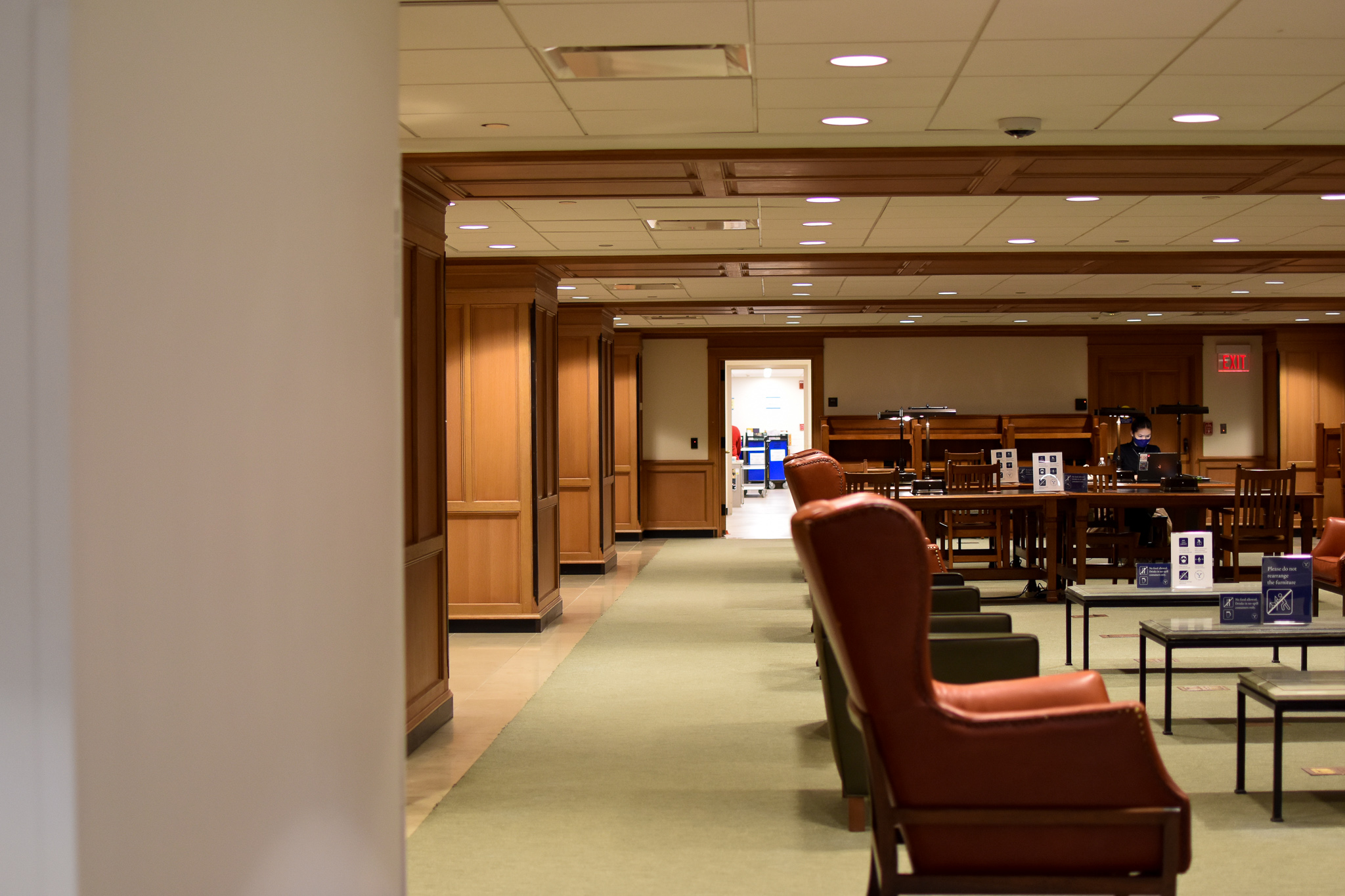
Karen Lin, Staff Photographer
At the entrance to Sterling Memorial Library, the phrase “The Library is the heart of the University” is engraved into the facade. With reading rooms dark, Sterling library’s massive cathedral-like atrium empty and libraries across campus devoid of students, “the heart” might seem to be beating a little more slowly. But library administrators insist that this is not the case.
Currently, around 250 members, or 50 percent, of the Sterling library’s staff are authorized to be on campus. And the libraries, which fully reopened on Aug. 31, now allow access to the physical spaces, which was not possible during previous closures. But without crammed reading rooms or a robust in-person operation, the system looks nothing like what Yale’s libraries looked like at the same time last year or, more generally, like a normal conception of a library. University Librarian Barbara Rockenbach is determined to use this time to change that narrative.
“People have a perception of what a library is,” Rockenbach said. “We tend to really focus on our image of the library being physical. One of the challenges — but it’s also been an incredible opportunity to tell a different story of the library — is that COVID forced us to continually say, ‘The library is still open even when the buildings are closed.’ You can still do your research, you can still learn and teach, because we have invested … in digital infrastructure that makes that possible.”
Rockenbach became the university librarian in July, during the beginning of the gradual reopening. At that point, the library was staffed by a “skeleton crew” who would field requests for physical materials and facilitate contactless pickup. Now, most of the libraries are open, with shorter hours, reduced occupancy and temporary infrastructure improvements, like plexiglass. The contactless pickup system is still in place, as well as a mail-to-home service that Rockenbach noted helped “provide an equitable experience” to those who are remote and those living on campus.
While there are some physical components available for use, the Sterling library has largely spent the past year expanding their digital infrastructure, archives and online services, some of which have been so successful that they plan to keep offering them post pandemic.
Patricia Carey, director of communications at the Library Administrative Services, told the News that many of the library’s instructional workshops, which have shifted to an online format, are more popular than ever before. And contactless pickup services have proven convenient for students, Carey added, so they are also considering keeping that as an option.
Beyond the changes to services over the last 12 months, the pandemic has also added logistical challenges in fulfilling book orders from professors, especially requests for digital copies, which have had a “dramatic increase,” according to Rockenbach.
“Because of licensing and copyright issues, it can take a while to locate and license an e-book or other e-resource,” Rockenbach wrote to the News in an email. “Sometimes, especially for textbooks, the publishers simply don’t license to libraries. In those cases, we work with faculty to explore other options and alternatives, such as open access materials or scanning of excerpts as allowed under fair use.”
Agnieszka Pasieka, an associate research scholar, experienced delays after requesting some digital materials for one of her classes. But she added that it is a “very difficult time for everyone” and that the delays were understandable.
Multiple professors reached by the News have not experienced any such delays. One of whom, Director of Undergraduate Studies of Political Science David Simon, said that he requested some material incorrectly and that staff “were very helpful in straightening out my request.”
“Faculty have been very generous in reaching out and giving feedback, both good and constructive,” Rockenbach said of the library’s current operations.
The Yale University Library System consists of 15 libraries and almost 15 million volumes.
Madison Hahamy | madison.hahamy@yale.edu







